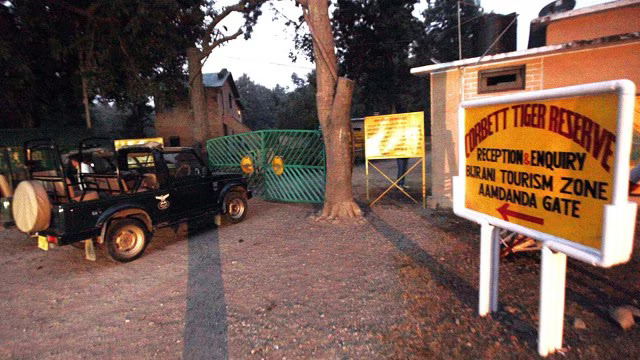Disha Tandon, Pune
After a landmark ruling by the Indian Supreme Court, Tiger Safari operations are now restricted to Jim Corbett National Park’s perimeter and buffer zones in Uttarakhand. Gaurav Bansal, an environmental activist and lawyer, contested the Uttarakhand government’s plan to construct a tiger safari and a specialist zoo inside the park’s boundaries in a petition that led to this decision.
The court’s ruling also touched on the subject of unauthorized building and tree cutting inside the tiger reserve, denouncing the roles played by former divisional forest officer Kishan Chand and Uttarakhand forest minister Harak Singh Rawat. In its verdict, the Supreme Court has directed the Central Bureau of Investigation (CBI) to continue its investigation into these illegal activities and submit a status report within three months.
The bench, presided over by Justice B. R. Gavai, expressed shock at Rawat and Chand’s flagrant disdain for the law and environmental standards, pointing out that their acts constituted a serious betrayal of public confidence. The Court underlined the detrimental effects of their acts on the environment and recognized their daring in evading the legislative prohibitions on economic gain.
Furthermore, the Supreme Court has taken proactive steps to prevent future environmental degradation by constituting a committee to explore the viability of tiger safaris in buffer or fringe areas of national parks nationwide. This move signifies a broader intention to balance tourism development with wildlife conservation.
The Enforcement Directorate raided Rawat and Chand’s homes in a linked earlier action to underscore the gravity of unpermitted developments inside the reserve. The Supreme Court’s recent ruling highlights the necessity for strict control and responsibility by reaffirming its opposition to the use of natural resources for political and economic advantage.
The apex court’s judgment also includes the establishment of a committee by the Center to suggest measures to redress the environmental damage caused and seek compensation from those responsible. The committee will assess the environmental damage to the Corbett Tiger Reserve, quantify the cost of remediation, and identify responsible individuals and officials to ensure that they bear the financial burden of the damage caused.
The Supreme Court addressed the wider ramifications of its decision by stressing the value of protecting wildlife and following set rules for safari tours within the park’s perimeter. This ruling builds on the Supreme Court’s earlier decision to support an animal-centric approach over a tourism-centric one, rejecting the National Tiger Conservation Authority’s (NTCA) proposal for tiger safaris within national parks.
The imperative to protect India’s natural heritage and wildlife is underlined by this latest judgment from the Supreme Court. It emphasizes the judiciary’s role in protecting environmental laws and principles, particularly where they are of significant conservation importance, such as Jim Corbett National Park. The court aims to ensure the conservation of biodiversity and the preservation of natural habitats for future generations by combating illegal construction, tree felling, and the unregulated expansion of tiger safaris.
The Supreme Court’s comprehensive strategy, which includes prohibiting core area tiger safaris and forming committees for environmental restoration, signifies a strong response to environmental mismanagement and misconduct. The bench, led by Justice B. R. Gavai, expresses this view. This decision not only resolves current issues in Jim Corbett National Park but also establishes a standard for the preservation of India’s natural resources and wildlife.
